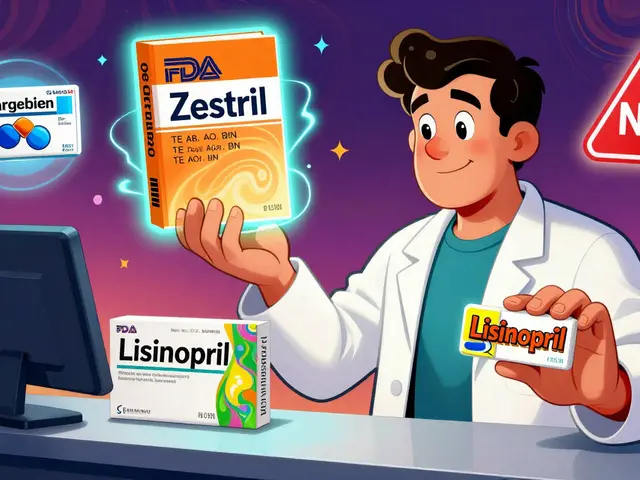
Why Pill Burden Matters for Seniors
Imagine waking up every morning and needing to swallow 10 pills before breakfast. Then another 6 after lunch. And a few more before bed. That’s not a chore-it’s a daily reality for millions of older adults. This is what doctors call pill burden: the total number of pills a person takes each day. For seniors managing multiple chronic conditions like high blood pressure, diabetes, or arthritis, it’s common to take five, ten, or even more medications. But taking that many pills isn’t just inconvenient-it’s dangerous.
Studies show that when people have to manage more than four daily medications, adherence drops sharply. Missed doses lead to uncontrolled blood pressure, spikes in blood sugar, and even hospital visits. The CDC found that nearly half of seniors don’t take their meds as prescribed, and pill burden is one of the top reasons why. It’s not laziness. It’s confusion. It’s swallowing pills that make your throat ache. It’s forgetting whether you already took that blue pill or not. And it’s the fear that if you miss one, something bad will happen.
What Are Combination Medications?
Combination medications-also called fixed-dose combinations (FDCs) or single-pill combinations (SPCs)-are exactly what they sound like: two or more drugs packed into one tablet or capsule. Instead of taking a blood pressure pill, a cholesterol pill, and a diabetes pill separately, you might take one pill that contains all three. These aren’t new. They’ve been used for decades in HIV and tuberculosis treatment, where missing even one dose can cause drug resistance. Now, they’re becoming standard for heart disease and other long-term conditions.
These pills aren’t just glued together. They’re carefully engineered. Each ingredient must work safely with the others, stay stable over time, and be absorbed properly by the body. The FDA requires proof that the combination works just as well as taking the drugs separately. That’s why you won’t find random mixes on the market. If a combination pill exists for high blood pressure, it’s because doctors and scientists tested it thoroughly and found it improves outcomes.
How Combination Pills Improve Adherence
The evidence is clear: fewer pills mean better adherence. A 2007 meta-analysis in the American Journal of Medicine found that patients using combination pills were 26% more likely to stick to their regimen than those taking the same drugs separately. Why? Simplicity. One pill instead of four means less to remember, less to organize, less to worry about.
For seniors, this isn’t just about convenience-it’s about safety. A 2023 study in the European Journal of Cardiology Practice showed that patients on single-pill combinations for hypertension had significantly better blood pressure control. Their systolic pressure dropped by nearly 4 mmHg on average compared to those taking the same drugs separately. That might sound small, but in medical terms, it’s a big win. Every 5 mmHg reduction in systolic pressure lowers stroke risk by 14% and heart attack risk by 9%.
And it’s not just blood pressure. Combination pills are now used for diabetes, COPD, mental health conditions, and even osteoporosis. The American Heart Association recommends starting with a combination pill for stage 2 hypertension, especially for older adults who need multiple drugs to reach their target. Why wait to add pills one by one? Start with the right mix from the beginning.

Real Benefits Beyond Fewer Pills
Reducing pill burden does more than make your medicine cabinet less cluttered. It changes your life.
- Lower costs: Many combination pills cost less than buying each drug separately, especially after insurance. Even if the co-pay is similar, you save on pharmacy fees and trips to refill.
- Less side effects: Some combination pills use lower doses of each drug. That means fewer side effects like dizziness, dry mouth, or fatigue-common reasons people quit their meds.
- More control: When you’re not juggling 10 pills, you’re more likely to notice if something feels off. You can tell your doctor if you feel better, worse, or if a side effect shows up.
- Less stress for caregivers: If a family member helps manage meds, a single pill reduces the chance of giving the wrong dose or missing one entirely.
One real-world study tracked seniors with schizophrenia who switched from daily oral pills to monthly injections. Adherence jumped from 62% to 89%. The principle is the same: reduce the number of times you have to take action, and you’re more likely to do it right.
When Combination Pills Aren’t the Right Choice
Combination pills aren’t magic. They’re not always the best fit.
For example, if your doctor needs to fine-tune your dose-say, increase your diuretic but keep your ACE inhibitor the same-a combination pill won’t let you do that. You’re locked into the ratio. That’s why they’re usually not the first choice when you’re just starting treatment. Doctors often begin with single drugs to see how you respond, then switch to a combo once the right mix is found.
Also, if you’re allergic to one component or have kidney issues that make one drug unsafe, a combination pill could be risky. And if you’re on a tight budget, sometimes buying generic versions of individual pills is cheaper than the combo.
The key is to ask: Is this helping me stick to my plan? If you’re still forgetting pills, skipping doses, or feeling overwhelmed, a combination might be the solution. If you’re already doing fine with your current routine, there’s no need to change.
How to Talk to Your Doctor About Combination Pills
Don’t wait for your doctor to bring it up. Take charge of the conversation.
- Count your pills. Write down every medication you take, including vitamins and over-the-counter drugs. Note the time of day and dosage.
- Ask: “Can any of these be combined?” Don’t say, “I want fewer pills.” Say, “I’m having trouble keeping track. Is there a combination pill that could work for me?”
- Bring your pill bottle list. Pharmacists can help spot opportunities. Many pharmacies now offer free medication reviews.
- Ask about cost. Some combos are more expensive. Ask if there’s a generic version or if your insurance covers it.
- Request a trial. If your doctor suggests a combo, ask if you can try it for 30 days and then check in.
Remember: Your doctor doesn’t know how many pills you’re swallowing unless you tell them. A 2017 CDC report says one of the best ways to improve adherence is to simply ask patients: “How many pills do you take each day?” Most doctors never ask.
What’s Next? The Future of Combination Therapy
The next wave of combination pills is even more powerful. Researchers are working on “polypills”-single tablets with three or four drugs. Some are designed specifically for older adults at risk of heart disease, combining a statin, blood pressure med, and low-dose aspirin. Early trials show they can cut heart attacks and strokes by up to 30% in high-risk seniors.
Pharmaceutical companies are also developing combo pills that release drugs at different times of day, so you get the full benefit without needing to take more than one pill. Imagine one pill that gives you your morning blood pressure control and your evening sleep aid in a single dose.
These aren’t science fiction. They’re already in late-stage testing. The FDA has signaled strong support for these innovations, especially as the population ages and chronic disease rates climb. By 2030, nearly 20% of the U.S. will be over 65. Managing their meds efficiently isn’t optional-it’s essential.
Bottom Line: Simplicity Saves Lives
Pill burden isn’t just a nuisance. It’s a silent killer. Every extra pill you take increases your chance of a bad outcome. Combination medications are one of the most proven, low-risk tools we have to fight that.
If you or a loved one is managing multiple chronic conditions, ask about combination pills. It’s not about cutting corners. It’s about making treatment work better for your life-not the other way around. Fewer pills. Fewer mistakes. Better health.
Are combination medications safe for seniors?
Yes, when prescribed appropriately. Combination pills are rigorously tested for safety and effectiveness before approval. The FDA requires proof that each drug in the combo works as intended and that the combination doesn’t cause harmful interactions. For seniors, these pills often reduce side effects because they use lower doses of each component. However, they’re not right for everyone-especially those with kidney disease, allergies to any ingredient, or who need frequent dose changes. Always discuss your full medical history with your doctor.
Can I split a combination pill if I need a lower dose?
Only if your doctor or pharmacist says it’s safe. Some combination pills are designed to be split, but many are not. Extended-release or coated pills can become unsafe or ineffective if split. Never split a pill without professional advice. If you need a lower dose, ask your doctor about a different combination or a single-pill option with adjusted strengths.
Do combination pills cost more than taking separate pills?
Sometimes, but often they cost less. Many combination pills are available as generics, making them cheaper than buying each drug individually. Even if the co-pay is the same, you save on pharmacy fees, transportation, and time. A 2023 analysis found that all cost-effectiveness studies showed savings with combination therapy due to fewer hospitalizations, reduced medication waste, and lower caregiver burden.
What if I’m already doing fine with my current meds?
If you’re taking your pills consistently, hitting your health targets, and not experiencing side effects or confusion, there’s no need to change. Combination pills are meant to help those struggling with complexity. But if you ever start missing doses or feel overwhelmed, it’s worth asking your doctor if a combo could make things easier.
Can pharmacists help me switch to combination pills?
Absolutely. Pharmacists are trained to spot opportunities for simplifying regimens. Many offer free medication reviews where they’ll look at all your prescriptions and suggest potential combinations, generic alternatives, or dosing adjustments. They can also help you understand which pills can be combined and which ones can’t. Don’t hesitate to ask your pharmacist-they’re often the best resource for reducing pill burden.






Jeremy Hernandez
November 17, 2025 AT 08:54Jessica Healey
November 17, 2025 AT 22:06Joseph Townsend
November 19, 2025 AT 01:45Bill Machi
November 20, 2025 AT 23:47Elia DOnald Maluleke
November 22, 2025 AT 12:14satya pradeep
November 22, 2025 AT 20:56Prem Hungry
November 22, 2025 AT 21:26Leslie Douglas-Churchwell
November 22, 2025 AT 21:34